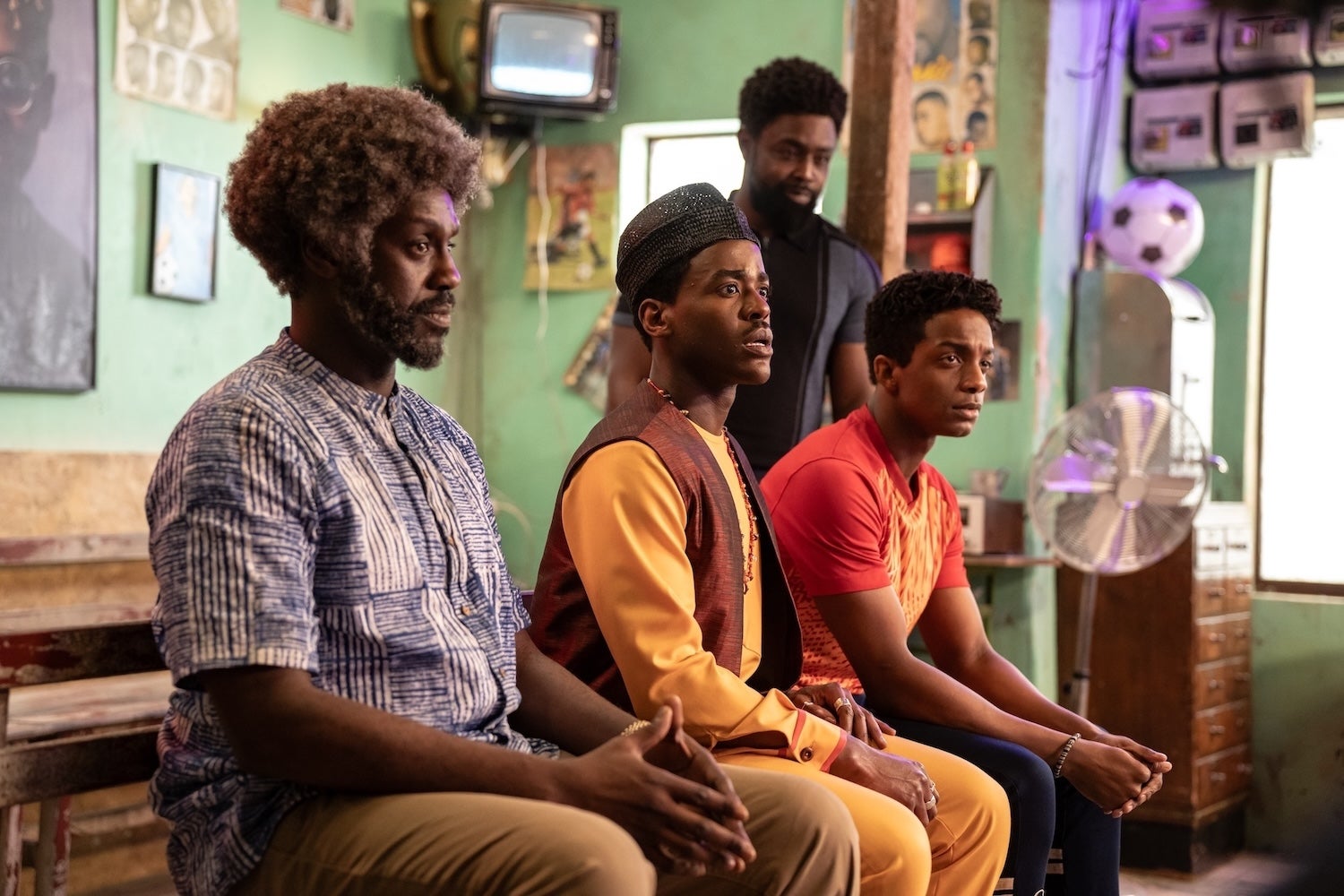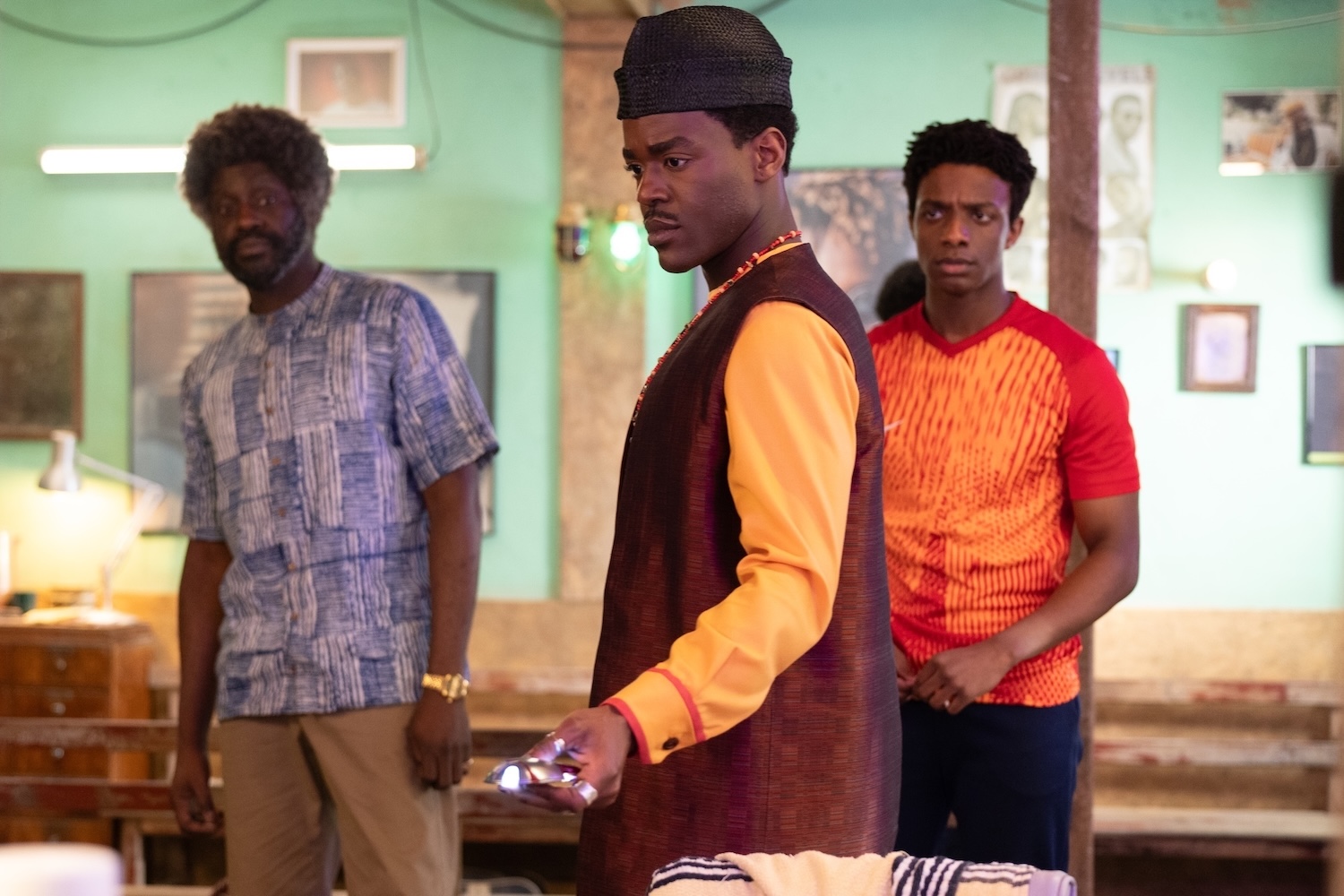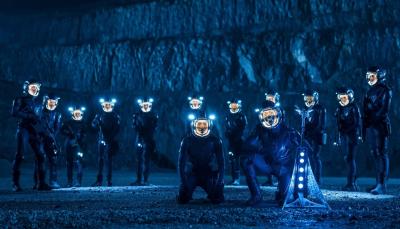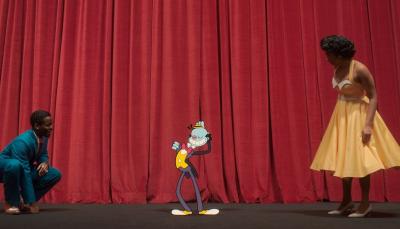'Doctor Who's' "The Story & the Engine" Is a Powerful Ode to the Stories We Tell
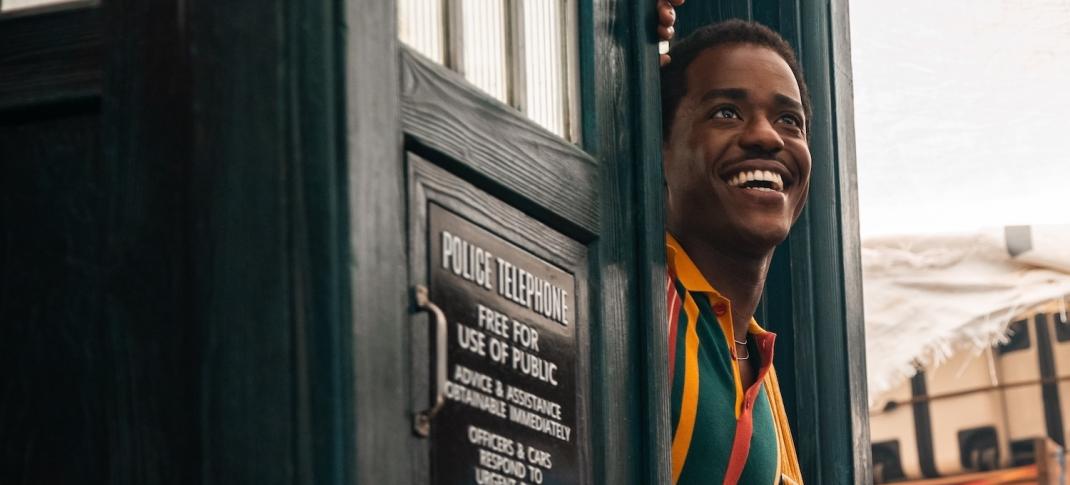
Ncuti Gatwa in "Doctor Who"
(Photo: Dan Fearon/BBC Studios/Disney/Bad Wolf)
"We're all just stories in the end" is an idea we've encountered on Doctor Who before. But although this line was originally spoken in the Season 5 episode "The Big Bang," the Eleventh Doctor's famous phrase has rarely felt more prescient (or tangible) than in the Fifteenth Doctor's second season. "The Story & the Engine" is perhaps the show's most direct continuation of that concept. It's an hour that posits that we are defined by the stories we tell — they shape us, how we are remembered, and are a key tool to understanding who we are, as individuals and as a broader species.
It's a love letter to the power of storytelling, from how stories change and evolve across different cultures to the communities formed around the act of doing the telling. It's one of the franchise's stranger episodes: visually striking, with a distinct feel of magical realism and a refreshingly different kind of narrative that's so concerned with character dynamics and big philosophical ideas that it forgets to give its central threat real teeth. (Terrifying giant spider thing aside.) Yet, it's another critical step in a season that feels like it's experimenting with big ideas about how Doctor Who can keep itself fresh and forward-thinking in its sixtieth decade.
Look, we've all heard the rumors about the show's future, whether star Ncuti Gatwa is leaving or if the series is slated to go on an extended hiatus following the Season 2 finale. But if anything, episodes like "The Story & the Engine" prove the show (this version of it, particularly) still has so much to say.
The story sees the Doctor and Belinda arrive in Lagos, Nigeria, in 2019, ostensibly to triangulate the Vindicator that's meant to get Belinda home once more, but also because the Doctor wants to visit a very specific barbershop. "The Story & the Engine" is one of the few episodes to deal directly with the question of the Fifteenth Doctor's race. The issue was briefly touched upon in "Lux," in terms of the segregation that would have been present in 1950s Miami, but this episode sees the Doctor directly reflect on how his experiences as a Black man are different from when he presented as white. Yet, where many (most?) viewers likely expected this moment to simply be a litany of the prejudices and threats the Doctor has experienced walking the earth with this specific skin color, it is instead reimagined as something joyous.
Yes, part of the reason Fifteen enjoys visiting Nigeria is because he is simply no longer (or at least markedly less) welcome in other parts of Earth, but it is also because being in this place allows him to find a kind of companionship he's never really experienced in any of his other incarnations.
It feels as though he's dancing through the crowded marketplace when they arrive, greeting and hugging people with a wide, beaming smile. He's become something more than a tourist passing through this place and has forged genuine relationships with those who live here, enough that several of them know both who and what he really is.
He's a regular at Omo's (Sule Rimi) not because he particularly needs his hair done (the TARDIS is on it), but because he loves the atmosphere of it all. The camaraderie, the community, the stupid jokes, and the overly involved stories. He likes belonging somewhere, making friends with ordinary people, and learning about who they are, and it's one of the most open and heartfelt admissions we've ever seen from this character. That Belinda simply smiles, puts aside her need to get home for a minute, and lets him go off to recharge himself emotionally is genuinely so sweet.
(I love this relationship so much, for the record.)
But, what the Doctor doesn't know is that Omo's shop is now under new management. A strange man known only as the Barber (Ariyon Bakare) has taken over, kidnapping regular customers and forcing them to tell the stories that somehow power his transdimensional ship. (That rides across what is essentially a nexus of ideas on the back of a giant robotic spider). This episode is so delightfully weird, and the sort of peak nonsensical sci-fi concept that I wish this show would do more of. Of course, Omo tried to trade the Doctor for himself and the rest of the customers — there's almost no other being in the universe who could possibly have as many stories as he does. He could power the Barber's spider ride to the end of creation, probably.
It's not an accident that this very unorthodox hour comes from a writer who is brand new to the Who stable. Poet and playwright Inua Ellams is a self-described lifelong Doctor Who fan, whose respect for the source material is evident even as the hour weaves themes and ideas throughout the hour that we don't necessarily see all that often in this franchise.
Stories and storytelling are topics Doctor Who taps into quite frequently — Fifteen's tribute to Belinda's everyday heroism has plenty of antecedents — but rarely in a way that connects so specifically to the Doctor's own. The idea that his physical body is simply an amalgamation of all his previous forms and that he, like the barbershop, is powered by the stories they told and the lives they lived, is powerful stuff, and the cross-cutting between various Doctors is incredibly affecting. (Plus, I love anytime I get to see Christopher Eccleston do the "Just this once, everybody lives!" line.)
"The Story & the Engine" doesn't do the best job of conveying its story's stakes. The Barber ostensibly wants to kill the gods, primarily because they refuse to credit him for his writing. (Honestly? Relatable.) But the episode doesn't give us much of an idea of what that means. Technically, the Doctor killed the God of Death like five episodes ago, and everything seems to be ticking along just fine. What would have happened if he were successful? The red and green lights are certainly ominous, but what were the consequences if someone had simply refused to tell a story? Did they get dumped into the void? Fed to the spider? Gifted with bad hair?
The idea that the absence of the storytelling gods and/or of stories writ large would be catastrophic for the human race is absolutely fascinating. Still, it simply isn't given enough time to breathe here. The show has been notably sloppy about how its "Pantheon" of gods works, so it's not even clear if these are even the same group of immortals (and enemies like The Toymaker have seemed more like simple aliens than, say, Loki.) But, perhaps the fact that it's making me think about it so much is the real sign — this is Doctor Who at its best. Full of big, messy, occasionally nonsensical ideas and big emotional swings that are enough to power many episodes beyond this one. If we're lucky.
New episodes of Doctor Who stream on Saturdays on Disney+ in the U.S. and BBC iPlayer in the U.K.

